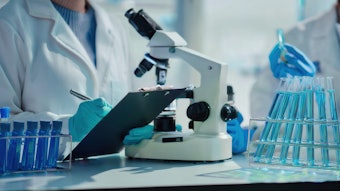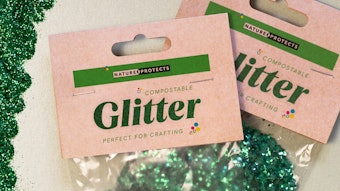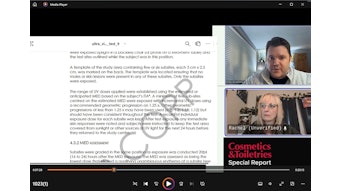
It has taken longer than a New York minute for Empire State lawmakers to come to a conclusion on banning plastic microbeads. Although in the Big Apple, the city council is making progress with a bill that would prohibit these tiny plastics used in personal care products and over-the-counter drugs within the city’s five boroughs starting Jan. 1, 2016.
To date, nine U.S. states, most recently California, and four New York counties have adopted laws to ban microbeads, although no law has been adopted for the state of New York at this point. However, there are the three pieces of legislation currently in discussion with the New York City Council related to personal care products that contain microbeads:
- Intro 928, a local law that would ban the sale of all personal care products that contain microbeads, which is supported by Attorney General Schneiderman.
- Reso 3665, which calls upon the State of New York A.5896 and S39332 known as the MicrobeadFree Waters Act, which prohibits the sale of personal cosmetic products containing microbeads.
- Reso 3696, which calls upon the federal government to adopt HR 1321/S.1424, the Microbeads-Free Waters Act of Committee on Consumer Affairs Committee on Consumer Affairs 6 2015, which would amend the Federal Foods, Drug and Cosmetic Act to ban the sale or distribution of cosmetics containing synthetic microbeads.
Pulling Microbeads Off Shelves: Not So Easy
Still, if a bill passes and a local law banning microbeads goes into effect, it could prove to be quite an overhaul for manufacturers and retailers, experts and lawmakers said.
"The real issue here with the microbeads is that so many times products contain microbeads, but it's not apparent from the product labeling," said Department of Consumer Affairs (DCA) Commissioner Julie Menin during a Oct. 26 hearing on the matter. "And so our concern is we want to be as vigilant as possible. So we know that there are thousands and thousands of these products in literally thousands of stores."
Sean Moore, from the Consumer Healthcare Products Association, told the council's Committee on Consumer Affairs the scope of this bill is defined so broad that it could have the unintended effect of banning products that do not even contain microbeads.
"If the bill were to move forward as drafted, the time frame would be such that the manufacturers would not have the ability to reformulate all these products before the bill went into effect," said Moore. "So products will have to be pulled off the shelves, returned to the manufacturer."
Another product concern that came up was sunscreen ingredients and mid-polymers that are not microbeads, but could be prohibited under this bill on the molecular level.
"And I don't think that there is any other incident that we've seen that shows that molecules of plastic in the environment have been contributing to this concern that the bill seeks to address," Moore added.
A Big Impact on the Big Apple
Microbeads, typically less than 3 millimeters in diameter, are said to have been making a big impact on the Big Apple’s waterways in a negative way. According to expert testimony presented to the city council, as many as 19 tons of microbeads are discharged into New York’s waterways every year and microbeads were found in about 75% of waste water treatment facilities in New York State. The microbeads data was even more bleak on a national scale.
“We get estimates from 2 billion to 20 billion of these microbeads being released into U.S. waters every day," according to Sherri Mason, a plastic pollution researcher and professor from the State University of New York at Fredonia.
Plastic can act as a sponge for chemicals like DDT as well as PCBs, which were banned in the 1970s, but are still prevalent, Mason said. "And molecules like PHs, which are known, they're actually the first group of compounds, which were proven to be carcinogenic, mutagenic and teratogens," she added.
Also, plastic particles, the experts said, can last for decades or centuries in the waterways and can be eaten by fish, turtles and waterfowl after traveling down the drain and through the waste water treatment process.
Ban Enforcement
Under the proposed New York City microbeads legislation, there is a penalty scheme of $2,500 for the first offense plus $1,000 for each extra offense on that same day.
Suffolk County has already enforced a ban on microbeads and enlists the County's Department of Health Services for enforcement. Mary Cooley, the Director of City Legislative Affairs for the New York City Department of Consumer Affairs, said the department selects 10 personal care products for inspection for ingredients such as polyethylene and polypropylene, "and they list them all from there," she said.
The city council plans to have a second hearing on microbeads on a later date. If it passes, it would then go to the full Council.










